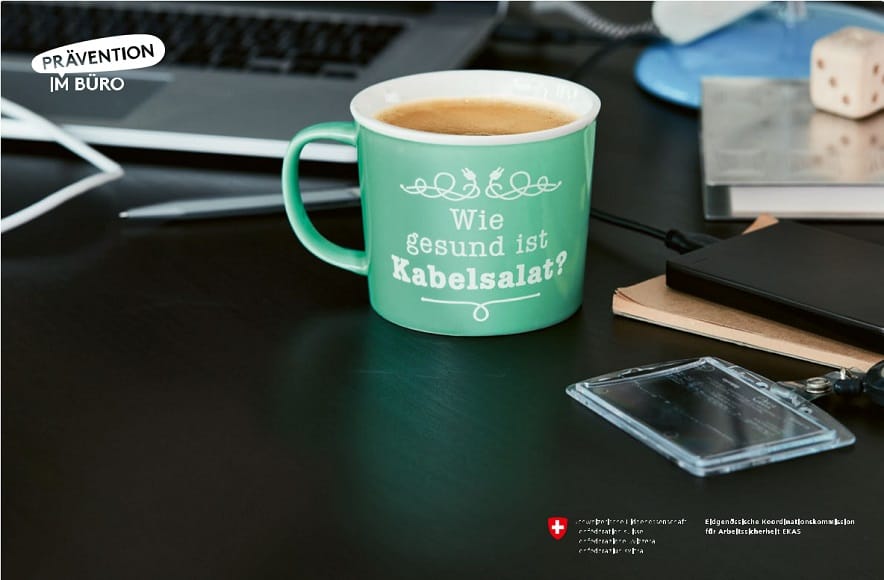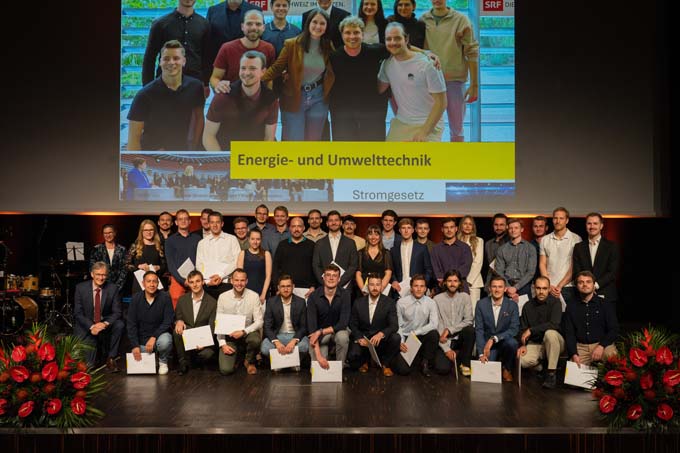Schulthess Clinic now SQS-certified
The Schulthess Clinic in Zurich provides top-quality orthopaedic services. Its reputation radiates throughout Europe. With the SQS certification according to ISO 9001, it also received confirmation of its quality management system excellence at the end of 2017.

COO Martina Bürgi-Hawel accompanied the project. She says: "The goal of subjecting the clinic to certification had existed for some time. The new clinic director, And-rea Rytz, finally gave the go-ahead for the launch of preparations based on a holistic concept." This was purposeful, because in the Schulthess Clinic complex processes are run through a filigree organisational structure. The system must do justice to this in all parts. According to Bürgi-Hawel, certification is also important for all employees "because it gives them clarity and transparency". The 90-million-euro expansion, which was completed on budget in 2016, was a major factor in the evaluation of a management system. This required far-sighted planning of personnel resources, because clinic construction is inevitably linked to the design of processes. That is why the COO was a member of the building committee.
Core competence orthopedics
The Schulthess Clinic is one of the leading orthopaedic clinics in Europe with over 1300 employees. The clinic's central concern is to relieve people of their pain and restore their mobility. As a specialist orthopaedic clinic, the Schulthess Clinic focuses on sophisticated treatment of the musculoskeletal system. The focus is on surgical orthopaedics, neurology, rheumatology and sports medicine. Networked top-quality medicine, innovation and humanity form the core of the Schulthess Clinic. Both general and supplementary insurants are welcome.
According to COO Bürgi-Hawel, the best possible results for the patient are achieved "through the highest level of specialisation, proven top doctors and the uniquely networked treatment model - proven by high case and success figures". There are specialized centers for each joint, which make interdisciplinary treatments possible. The case numbers are among the highest in Europe. There is close cooperation with the medical technology industry.
Innovation driver
The clinic draws its innovative strength from its in-house practice, teaching, research and development. Cooperations in the field of orthopaedics with renowned national and international universities support this. Numerous prosthesis developments can be traced back to this. The sustainable and independent research work is supported by the Wilhelm Schulthess Foundation.
Successfully SQS-certified according to ISO 9001
In mid-November 2017, two SQS auditors spent four days checking the maturity of the management system. They visited the departments on site and conducted in-depth audits. Even in this final phase, potential for improvement is still identified. On the hospital side, the relevant process managers were in demand as contact persons. But of course, each quality user bears responsibility for his task and must be in the know. The teams were trained accordingly. With the SQS certification, the Schulthess Clinic's quality policy was confirmed by experts from an external perspective. The preparation time for this certification was 15 months. Quality manager Béatrice Tissot-Daguette had the lead in this project, COO BürgiHawel brought in her experience from quality management as a coach.
Doctor in the SQS auditor team
reputation and the relevant references in the healthcare sector were decisive factors in choosing SQS as the certification body, according to the COO. "And because it meets our requirement that auditors must know the industry inside out. This is also true in the climate sector." This was the case, and the excellent know-how of the auditors and their medical and business background meant that a great deal of added value was achieved for the clinic.
Involvement of the medical profession
In addition to the Chief Medical Officer, Dr. Daniel Herren, responsible physicians from the medical departments and an assistant physician representative were involved. How did doctors initially feel about the project? According to the COO, "During the 15 months of preparation, they went through a process of realization and are now convinced of the added value.
Pre-audit as "main sample
The pre-audit was carried out by two SQS auditors over three days in May 2017. The certification procedure does not require a pre-audit to be carried out. But it is worthwhile because it clarifies many questions, such as: Where do we stand today? What still needs to be done? It avoids surprises and gives you the opportunity to remedy any shortcomings that are discovered. This is helpful because many departments are confronted with standards for the first time during initial certification. They have to get to grips with the actual requirements. Martina Bürgi-Hawel comments: "The ice broke with the employees during the pre-audit. Their distance from the project gave way to conviction. It is also advantageous to get to know the auditors on this occasion. You know what they're looking for."
Learning system
From an operational point of view, it is of central importance that the transparency of all processes is guaranteed by efficient and effective workflows. "For me, there is no other way of working," emphasizes the COO. The old phrase "knowledge is power in the hospital" is thus thrown overboard. You don't have to search, you find in the system and everyone has access to it and the same information. Such a view beyond the department opens the eyes.
People ask themselves and third parties other questions. The Schulthess Clinic goes even further: employees can go into another department by appointment and learn what happens there. This is very much appreciated. In this way, the system turns interfaces into interfaces and creates clear responsibilities.
The clinic implemented the management system with the "IQSoft" tool. It defines the processes and reminds of any pending issues before and after measures are taken. Every Monday, for example, the system checks what needs to be done. This ensures that nothing is forgotten.
Risk management as a significant factor
Risk management plays an important role. At the end of the year, the strategic risk analysis by the management and the extended management is incorporated into a document that maps the strategic and operational risks for each process and defines the measures to be taken.
Patient and employee surveys are standard practice, because we want to learn from the front. The quality policy of Schulthess Clinic sets the guidelines for this, and daily quality management is supported by the system - accompanied by institutionalised training programmes at all levels. One of our successful training partners is Swiss Aviation Training with its modules in interdisciplinary team development.









